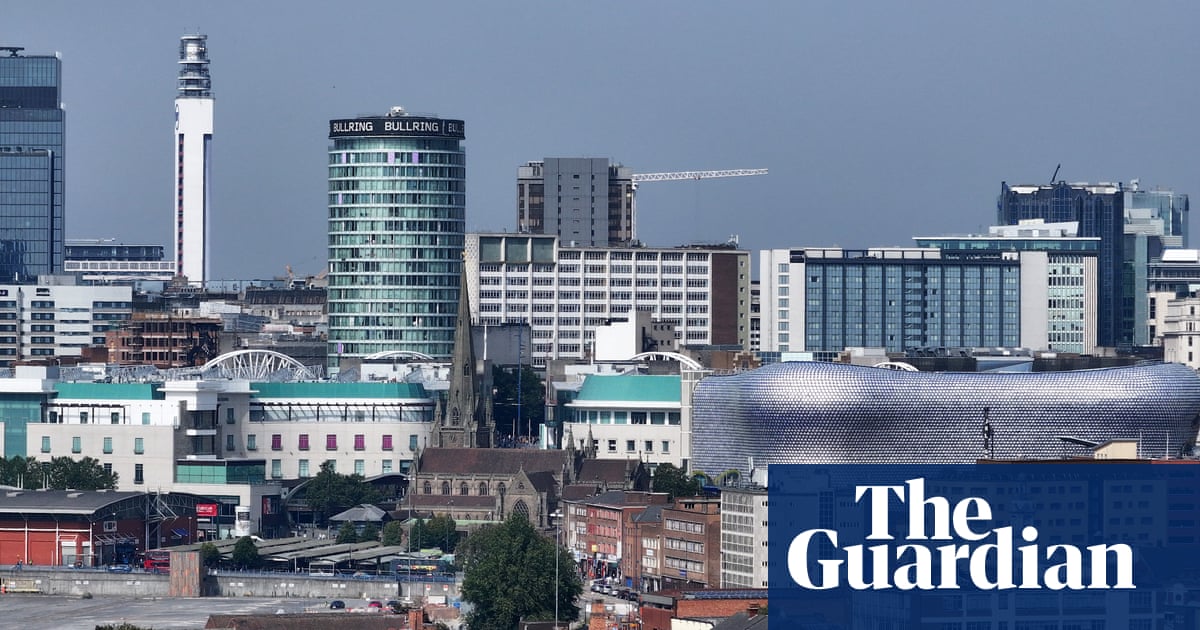
Michael Gove is expected to pause the government’s planning changes and review them before deciding how to proceed, sources say.
Proposals widely seen as tipping the balance of power away from local objectors and towards developers have caused uproar among grassroots Conservatives, though advocates say they are vital for boosting housebuilding.
Gove, as the housing, communities and local government secretary, has been given responsibility for making the government’s levelling-up agenda a reality and protecting the union, and his sprawling department could be renamed in the coming days to reflect those priorities. But the contentious planning shake-up is one of the most fraught issues in his in-tray.
Instead of individual planning applications being decided through a democratic process, councils would be asked to draw up multi-year plans that divides land into zones for development and protection. Outline approval would be automatic in growth zones and there would be a statutory presumption in favour of development in renewal zones.
It is understood that Gove, who was handed the housing portfolio in Wednesday’s reshuffle, is minded to pause and undertake a complete review of the plans, in consultation with backbench colleagues and industry stakeholders.
Prominent critics of the radical overhaul include Theresa May, Jeremy Hunt and Damian Green, and some MPs have said the issue risks losing the Tories a string of seats at the next election if voters believe they plan to concrete over the green belt.
Recent reports had suggested the plans could be watered down, but some MPs feared the arrival of the tough-minded Gove in his new post could signal a determination to push ahead.
“Gove might have been put in because they thought [Robert] Jenrick [the previous housing secretary] might crumble. Gove doesn’t mind being unpopular,” one MP said.
Another backbencher representing a constituency where Jenrick’s planning changes were expected to lead to significantly more housebuilding said Gove’s appointment “probably isn’t good news”.
“We respect Michael, he’s a canny operator,” the MP said. “But there’s a school of thought that he’s been sent in to browbeat people who don’t fall into line. At the same time, we might just be 18 months from an election, so the government has to work with its backbenchers. A reshuffle doesn’t change the fact that this has to work for constituents.”
Other MPs said they hoped Gove would be more receptive to their concerns, not least as his Surrey Heath constituency would be more affected by the proposals than Jenrick’s Newark seat.
“Michael’s political antennae just seem more attuned than Robert’s,” one said. “I’m sure he realises that concreting over the Tory heartlands isn’t the best policy and was probably a factor in us losing the Chesham and Amersham byelection.”
Another backbencher said: “I would have thought Michael would have more sensitivity to these things, because his own area is one where you would expect quite a bit of nimbyism. He’s got real sway within the party, and his credibility is strong, so the perception is he’ll be able to deal with it better, whatever happens.”
Further details of the reshuffle – delayed for some hours as Johnson held a meeting with the United Arab Emirates’ crown prince, Mohammed bin Zayed al Nahyan – showed a significant cull of some longer-standing ministers to make room for newer faces, with one member of the 2019 election intake getting a junior role.
As well as Nick Gibb, sacked after six years as schools minister and 16 as an education minister or shadow minister, also departing were the culture and sport ministers John Whittingdale and Dinenage, and Jesse Norman, number three on the Treasury team. Luke Hall and Justin Tomlinson were removed from roles at the communities ministry and work and pensions department. Graham Stuart lost his job as a junior trade minister, while James Duddridge left the Foreign Office, and Matt Warman returned to the backbenches from the Department for Digital, Culture, Media and Sport (DCMS).
Among those shunted between jobs were Robin Walker, going from the Northern Ireland Office to replace Gibb, and Lucy Frazer, the former prisons minister who takes Norman’s post at the Treasury. Helen Whately, a fixture on TV bulletins during the pandemic as the health minister responsible for social care, takes on another junior Treasury role. Maggie Throup, formerly of the Treasury, has moved the other way, to health. Jo Churchill (environment), Vicky Ford (Foreign Office) and Chris Philp (culture) were among moves announced late on Thursday night.
There were also some newcomers, including Lee Rowley, in the business department, and Neil O’Brien, in the communities and housing ministry. Amanda Solloway, part of Johnson’s 2019 contingent, becomes a junior whip.












